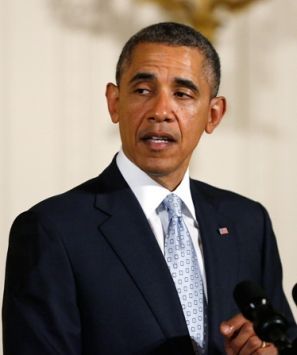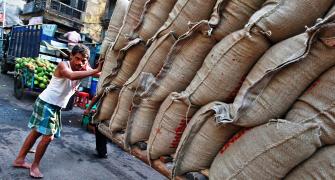 The government held a high-level meeting on Monday to discuss apprehensions that the US government might impose sanctions against Indian companies on the ground of a lax intellectual property rights (IPR) regime.
The government held a high-level meeting on Monday to discuss apprehensions that the US government might impose sanctions against Indian companies on the ground of a lax intellectual property rights (IPR) regime.
Delhi, it was decided, would not tolerate such a move from Washington. “It has been decided that India will not cooperate with the US on any sort of investigation on Indian IPR or trade laws,” an official said after Cabinet Secretary Ajit Seth took a meeting of top bureaucrats over the issue.
India, it was decided, might take the US to the World Trade Organization (WTO) if such unwarranted action was taken, while keeping open the door for discussion to allay perceptions on Delhi's trade laws.
The Cabinet secretary reiterated that India was WTO-compliant on Trade Related Intellectual Property Rights, officials said. The government is also compiling cases where the US had breached IPR laws.
Officials attending included the secretaries for foreign affairs, commerce, industrial policy and health. India's ambassador to the US, S Jaishankar, is also discussing the issue with the US government.
The office of the US Trade Representative is expected to issue what is termed a “Special 301” report this month-end or early next month. This is an annual survey in which the USTR is supposed to identify countries which do not provide “adequate and effective” IPR protection or “fair and equitable market access to United States persons that rely upon IPR”.
There is apprehension that the USTR might put India on the Priority Foreign Country list for IPR; this names countries judged to have inadequate intellectual property laws or deny fair and equitable market access to US entities relying on IPR protection.
Such countries may be subject to sanctions. As a part of such penal action, the US may withdraw benefits under the scheme of Generalised System of Preferences, which provides reduced tariffs for Indian goods entering US markets.
The US International Trade Commission, a quasi-judicial independent federal body which advises the US President, the USTR and the nation’s legislature on trade matters, had begun a probe into India’s trade and industrial policies on February 12.
Since US President Barack Obama’s 2010 India visit, American firms, especially a certain segment of the US pharmaceutical industry, have become extremely vocal about Indian policies on domestic content requirements and IPR.
Policy circles here believe the US is doing these to protect the interest of a handful of pharmaceutical companies, which command influence in policy making circles there. These include Pfizer, Bayer and and Swiss pharma major Novartis.
The department of industrial policy and promotion, under the commerce & industry ministry, has prepared a list of all cases since 1974 where the US is held to have breached IPR laws, rejected patents and invoked compulsory licensing, in sectors ranging from electronics to pharmaceuticals.
During the 2002-2012 period, 20 cases related to pharmaceuticals were invalidated by the US Federal District Courts, compared with 34 related to mechanical devices and 10 to medical devices. Between 2007 and 2011, about 280 cases were identified in the US Federal District Courts where patent validity was determined. Of these, the patent was held valid and enforceable in only 39 cases. In 253 cases, the patent was held invalid.
Refusing to deal with the matter bilaterally, the government has apparently told its American counterpart that such issues should be discussed only at multilateral platforms like the World Intellectual Property Organization and WTO. However, following the Novartis and Bayer-Onyx cases here, the US is concerned that other countries such as Brazil, China and in Africa might follow India’s model of compulsory licensing.
IPR war
* Officials decided India will not cooperate with the US on any sort of investigation on Indian IPR or trade laws
* But it will keep the door open for discussion to allay US perceptions on New Delhi's trade laws
* The government is compiling cases where the US had breached IPR laws
* The office of the US Trade Representative is expected to come out with a report on Special 301 by April-end or early May
* Apprehensions that USTR might put India on the Priority Foreign Country list for IPR, making it subject to sanctions








